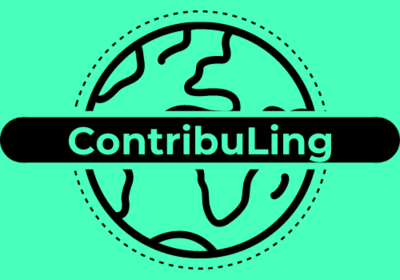ContribuLing 2022
| ContribuLing 2022 | Program | Contact us | Yɛltɔɣili |

Piligu
Waliginsim pam biɛni di yi ti kana bala nima zaŋ pa pohim zuɣu ni kompiita zuɣu niɣimbu ni, din tiri ti n wuhiri bala maa bayaana nima ni di tuma niɛma nima. Lala zuɣu, di mali buchi pam zaŋ chaŋ lahabali shɛŋa din pun biɛni ni sɔftiwaya, di yi nyɛla din namda bee din deeri lahabali (shɛhira: Keyboard, speech recognition, OCR Sɔftiwaya, web crawling) bee din maani lahabaya ni di taba kamani search engines, encyclopedia nima, language learning ni chatbots.
Given the situation, numerous projects have been launched over the last few years to make it easier to produce and share linguistic resources. The latter are mostly geared towards data collection, e.g. speech or text corpora, dictionaries, glossaries or grammars. One of the major challenges is to allow everyone easy access to such linguistic resource platforms.
ContribuLing
The ContribuLing conference, a joint contribution of INALCO, Wikimédia France, Wikimedia MA and BULAC, will take place on 22nd April 2022, online and in Paris (if the health situation allows it). The event aims at offering linguistic resource platform managers an opportunity to lay out their specs and stage workshops that will enable would-be users to contribute.
ContribuLing's main goal is to ensure that the largest possible number of contributors can use the platforms, so that they can contribute afterwards. An additional benefit will be to allow the emergence or the development of user groups who share the same tools or platforms. Emphasis will not be laid on producing data sets, but on enabling attendees to do so.
Given its international aspect, presentations and workshops in Contribuling will have live interpretation, allowing participants to fully participate in both French and English.
Ŋuni kana laɣingu ŋɔ ni
The project will consist of presentations of tools and platforms that can contribute to improving how they are designed and used. Language-specific workshops will help would-be contributors to use tools and platforms in relation to specific languages.
Zɔnzɔ gili Kɔmitii
- Reda Benkhadra (Wikimedia MA)
- Adélaide Calais (Wikimédia France)
- Johanna Cordova (Inalco / ERTIM / Amériques)
- Émilie Guimier de Neef (Orange)
- Molá Kɔŋgɔ́ (Idemi Africa)
- Nonhouegnon Letchede (Idemi Africa)
- Pierre Magistry (Inalco / ERTIM)
- Elvis Mboning (NTeALan)
- Damien Nouvel (Inalco / ERTIM)
- Juliette Pinçon (BULAC)
- Lucas Prégaldiny (Wikimédia France / Lingua Libre / UGA)
- Jhonnatan Rangel Murueta (Inalco SeDyl)
- Anass Sedrati (Wikimedia MA)
- Bastien Sepúlveda (BULAC)
- Emma Vadillo Quesada (Wikimédia France / Lingua Libre / Amériques)
- Ilaine Wang (Inalco / ERTIM)